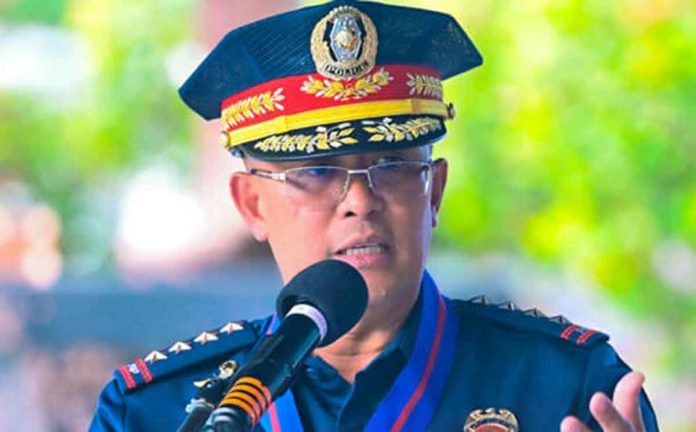
MANILA — The Philippine National Police has recommended the inclusion of online cockfighting, also known as “e-sabong,” in the list of illegal gambling activities penalized under Presidential Decree (PD) No. 1602 which serves as the country’s anti-illegal gambling law.
In a press briefing on Monday, PNP chief Gen. Rodolfo Azurin Jr. said the Anti-Cybercrime Group (ACG) has recommended to Congress the inclusion of e-sabong and proposed sanctions against service providers that fail to block websites on those games.
“It should be noted that [these] websites hosted outside the Philippines can only be blocked, not taken down, as [they] continue to operate via virtual private network. The PNP is having a hard time curbing e-sabong because of the technological aspect,” Azurin said.
“It’s a battle of technology. Some people engaged in e-sabong are well-financed and their resources are overwhelming, so I think the government should also start beefing up or strengthening its cyber-capability,” he also said.
Crackdown
Last month, Interior Secretary Benhur Abalos directed the PNP to draft a bill proposing to amend PD 449, the 1974 proclamation against cockfighting, and PD 1602 of 1978 which provided tougher penalties for the enforcement of PD 449.
Meanwhile the PNP has been cracking down on e-sabong operations on the basis of President Marcos’ Executive Order No. 9 issued in December last year.
The EO serves to ban the livestreaming or broadcasting of cockfights and online betting on these games.
But the crackdown is also justified by the said decrees which, as the Department of the Interior and Local Government had earlier explained, prohibit all forms of cockfighting outside the in-person activity allowed only on Sundays, holidays and town fiestas.
Mr. Marcos’ predecessor, Rodrigo Duterte, first ordered a stop to e-sabong operations in May last year, following the disappearance of at least 34 aficionados who still remain missing to date.
But while big operators ceased their operations, small operators continued, with a number of them even operating outside the country.
‘Guerrilla’ operations
According to Azurin, a total of 218 platforms have been blocked or taken down, while 76 others, including mobile apps, have been deleted and 39 websites as well as a Facebook page have been put out of service since last year.
The PNP had also partnered with the Department of Information and Communications Technology and the National Telecommunications Commission in taking down five more websites hosting e-sabong games.
Azurin said the police are monitoring 272 more platforms—composed of 146 websites, 67 Facebook accounts, 31 Facebook groups, 18 Facebook pages and 10 mobile apps used in e-sabong activities.
Last December, he ordered all police units, even the Criminal Investigation and Detection Group and the Intelligence Group, to intensify their pursuit of what he described as “guerrilla” e-sabong operations.
“If this continues, eventually, it will cause the crime rate to increase, as people who are burdened with debts will turn to crime so that they can continue playing e-sabong,” Azurin said.
“We knew what happened in the past. Even members of the [police] and the [military] were not spared from [this addiction],” he added. (Dexter Cabalza, Inquirer Research © Philippine Daily Inquirer)






